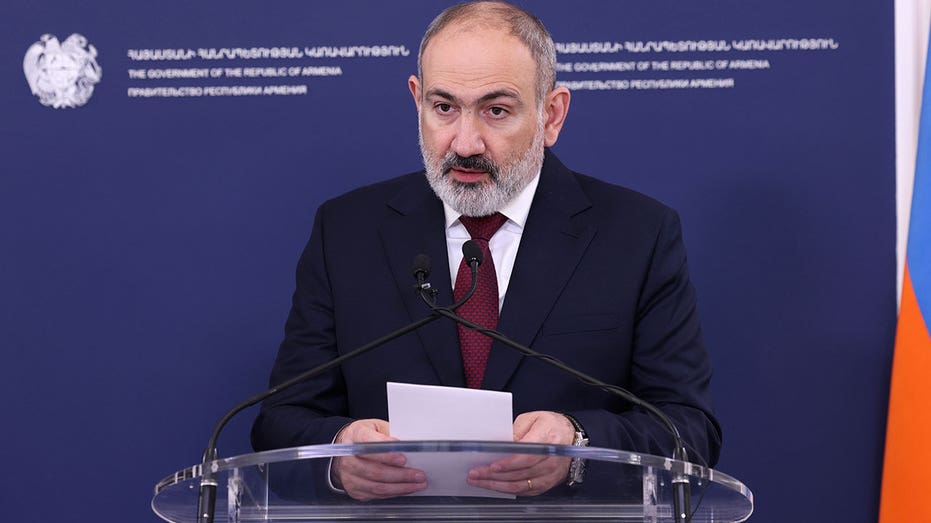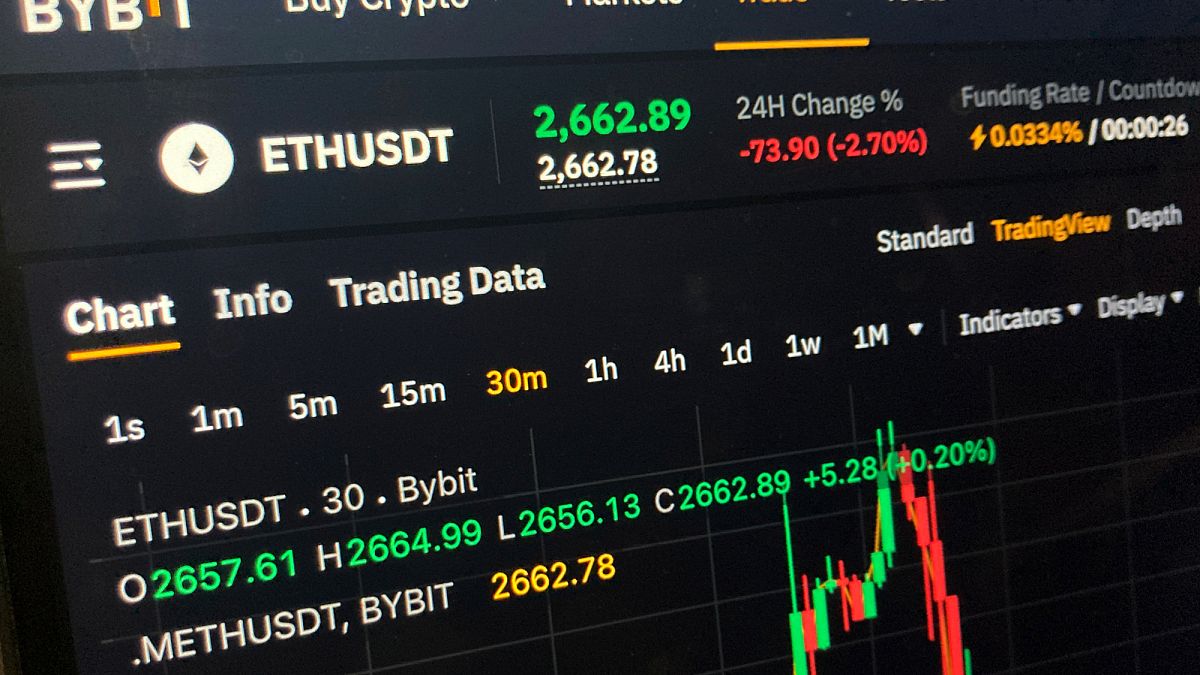Armenia's prime minister urges swift border agreement to avoid conflict with Azerbaijan
Armenia's Prime Minister has voiced the urgency of defining the border with Azerbaijan to prevent further conflict, despite an agreement to negotiate a peace treaty.

Armenia's prime minister said Tuesday that the Caucasus nation needs to quickly define the border with neighboring Azerbaijan to avoid a new round of hostilities.
Last year, Azerbaijan waged a lightning military campaign to reclaim the Karabakh region, ending three decades of ethnic Armenian separatists’ rule there.
In December, the two sides agreed to begin negotiations on a peace treaty. However, many residents of Armenia’s border regions have resisted the demarcation effort, seeing it as Azerbaijan’s encroachment on the areas they consider their own.
GERMANY HOSTS TALKS TO ADVANCE PEACE TREATY BETWEEN ARMENIA AND AZERBAIJAN
Speaking to residents of the border village of Voskepar in the Tavush region, Prime Minister Nikol Pashinyan warned that Armenia's refusal to delineate the border could trigger a new confrontation.
"It would mean that a war could erupt by the end of the week," Pashinyan said. He noted that the border demarcation should be based on mutual recognition of territorial integrity of Armenia and Azerbaijan based on Soviet maps from 1991, when they were both were part of the Soviet Union.
"We shouldn’t allow the war to start," Pashinyan said. "And this is also the reason that we decided to go to delimitation of the borders in these parts of Armenia."
The opposition has blamed Pashinyan and has organized a long series of protests against him for allowing Azerbaijan to rout ethnic Armenian forces and reclaim control over Karabakh. The region, known internationally as Nagorno-Karabakh, and large swaths of surrounding territory came under full control of ethnic Armenian forces backed by Armenia at the end of a separatist war in 1994.
Azerbaijan regained parts of Karabakh and most of the surrounding territory in a six-week war in 2020. It then launched a blitz last September that routed the separatist forces in one day and forced them to lay down arms. More than 100,000 ethnic Armenians fled the region after that, leaving it nearly deserted.
The hostilities have badly strained Russia-Armenia ties, with Armenian authorities accusing Russian peacekeepers who were deployed to Nagorno-Karabakh after the 2020 war of failing to stop September's onslaught by Azerbaijan. Moscow, which has a military base in Armenia, has rejected the accusations, arguing that its troops didn’t have a mandate to intervene.
Moscow, in turn, has been angered by Pashinyan's efforts to deepen ties with the West and distance his country from a Russia-dominated security alliance of ex-Soviet nations. Russia was also vexed by Armenia's decision to join the International Criminal Court, which last year indicted Russian President Vladimir Putin for alleged war crimes connected with the war in Ukraine.
Pashinyan underlined Armenia's intention to forge close relations with the West when he hosted visiting NATO Secretary-General Jens Stoltenberg for talks on Tuesday.
"We want to continue and develop the existing political dialogue and expand our partnership with the alliance and some of its members," Pashinyan said after the talks.
ARMENIAN PM FACES MILITARY'S DEMAND TO RESIGN, TALKS OF COUP
He said Yerevan would welcome NATO's efforts to help normalize ties between Armenia and Azerbaijan.
"We expect strong support from the international community, including NATO, for the peace process between Armenia and Azerbaijan," he said.
Stoltenberg, who traveled to Armenia to wrap up his three-day tour of the South Caucasus region that also involved visits to Azerbaijan and Georgia, praised Armenia for its contribution to NATO peacekeeping operations, including the alliance's peacekeeping mission in Kosovo. "NATO supports Armenian sovereignty and territorial integrity, and your peaceful aspirations," he said.
Stoltenberg emphasized the need for for Armenia and Azerbaijan to reach an agreement on normalizing ties, emphasizing that "this matters for Euro-Atlantic security as we face a more dangerous world."
During his visit to Azerbaijan on Sunday, the NATO chief encouraged it to "seize this opportunity to reach a lasting peace agreement with Armenia."
What's Your Reaction?
















